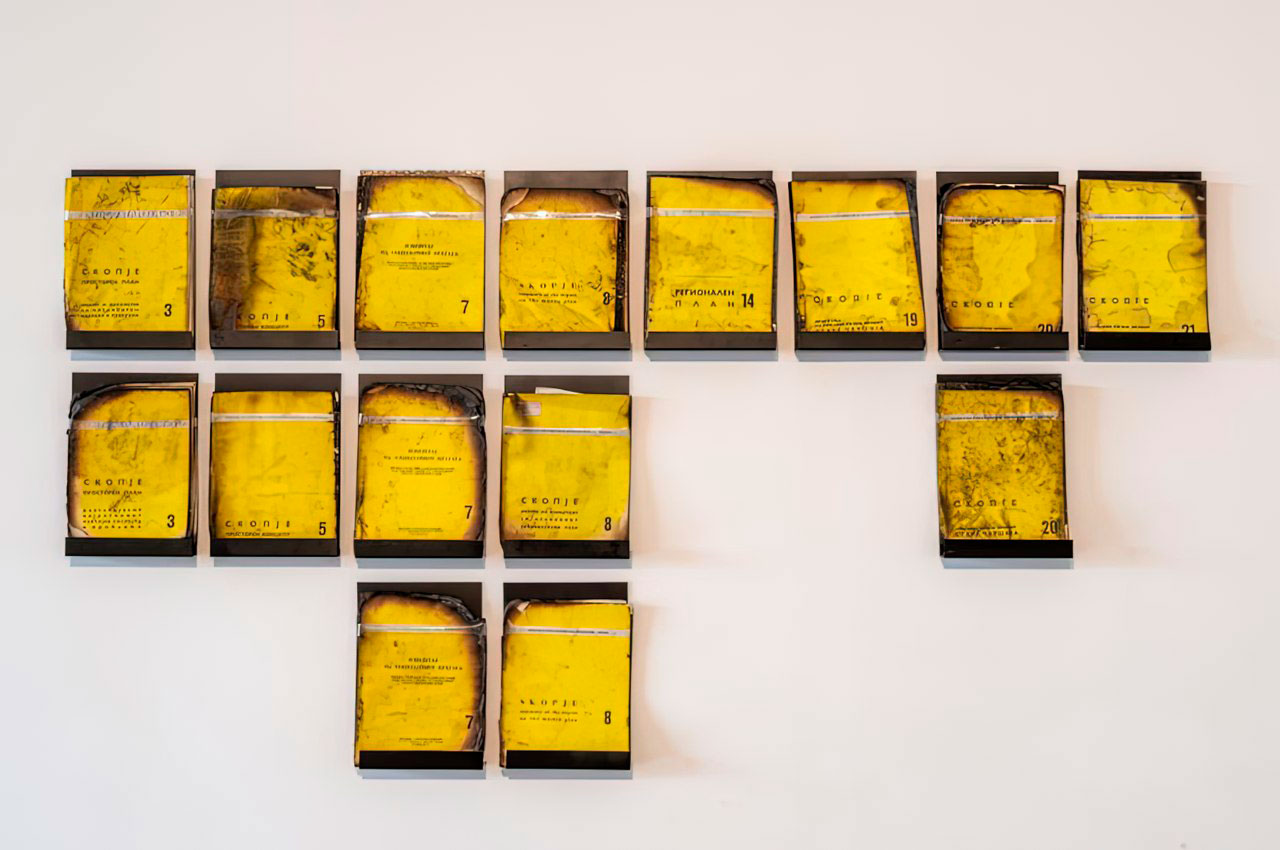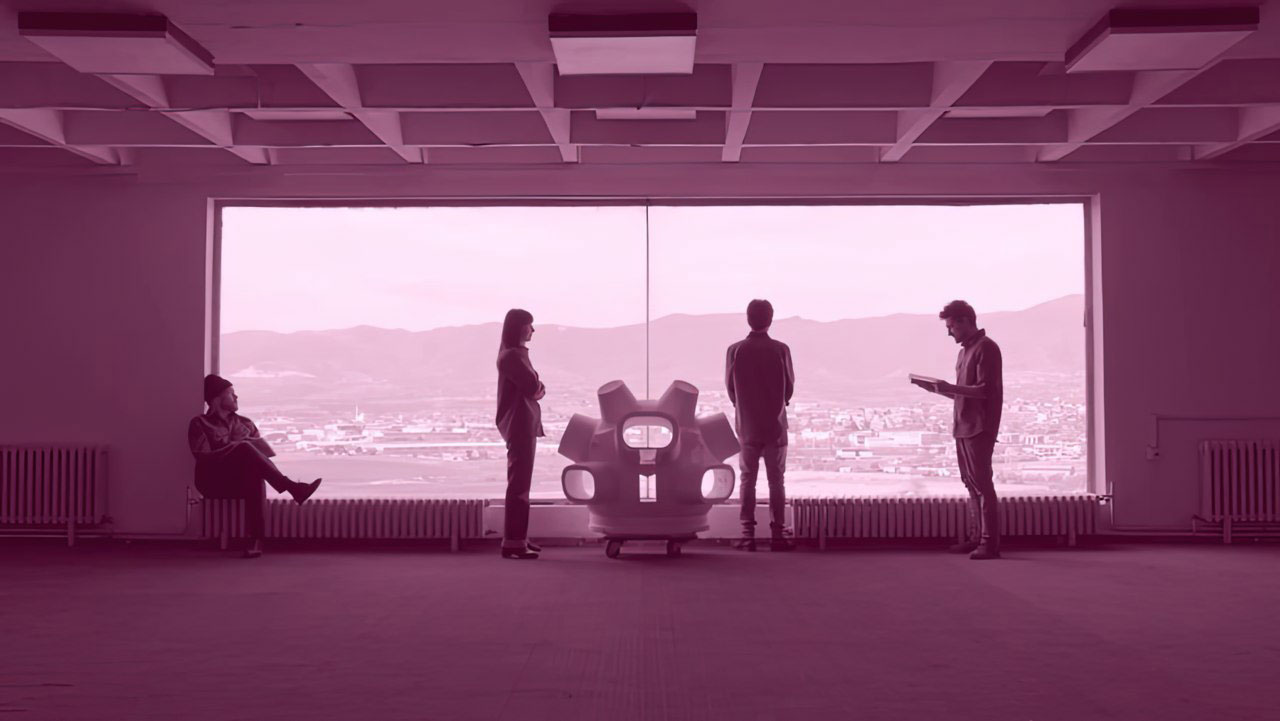ART CITIES: Berlin-Yane Calovski
![]() Yane Calovski’s artistic practice is research-based and interdisciplinary. He is interested in reactivating and linking existing, inconclusive modernist narratives, and how these, as evocations, can stimulate a new critical imagination. His perception of a subject is almost always relational and contextual. Visually, he articulates his work by examining the discursive traces in archives that emerge from the absorption and assimilation of information.
Yane Calovski’s artistic practice is research-based and interdisciplinary. He is interested in reactivating and linking existing, inconclusive modernist narratives, and how these, as evocations, can stimulate a new critical imagination. His perception of a subject is almost always relational and contextual. Visually, he articulates his work by examining the discursive traces in archives that emerge from the absorption and assimilation of information.
By Dimitris Lempesis
Photo: Zilberman Gallery Archive
The non linearity of collective memory informs Yane Calovski’s practice as he researches and conducts fieldwork over long periods of time. He assembles found materials from various archives, questioning how history is practiced, produced, presented and consumed. Through writing, drawing, video and installations, he processes information, actions and the remnants of previous research, embodying both elusive and concrete themes that sometimes overlap, then reappear. This methodology results in works that demarcate the installation concept towards architectural constructions informed by the spatial and contextual specificity of the site, the visual value of the material and the conceptual elasticity of the form. In his solo exhibition, “Residual Entries”, Yane Calovski brings together new and existing work stemming from research he has conducted over a period of more than ten years. The core of the exhibition includes three installations:” Undisciplined Construction of an Archive”, “MAKEDONIUM: Dramaturgy of the Unfinished” and “Schöning Revisited: Extensions, Chroma, Inflections”. The source, as well as the subject, of these installations are institutional and private archives that have provided Calovski with material for addressing the ambivalent legacy of large-scale urban planning projects carried out in the 1960s and ’70s. The installation “Undisciplined Construction of an Archive” stems from Calovski’s reflections on his home town of Skopje. The city was almost completely destroyed by an earthquake in 1963, and as a result it became the subject of an international city-planning competition won by the Japanese architecture firm Kenzo Tange. This new start was seen as an opportunity for Skopje to create an internationally recognized symbol of Macedonian national identity within the multi-national state of Yugoslavia. Tange’s Master Plan for creating an ideal city involved re-shaping all aspects of the city (on the societal, economic, political and cultural levels. But this plan was never realized in full; instead, the results are marked by all the discrepancies between the urban utopia sketched on the drawing board and the real needs of Skopje’s residents) to which they hoped the government would respond with practical urban planning decisions. The chasm between lofty plans and real results constitutes the starting point for Calovski’s exploration of the Archive for City-Planning and Architecture in Skopje, as well as for his reflections on the wide-spread optimism of modern architecture in the 1960s and ’70s—whose gestures were later often criticized as authoritarian. In 2017, the archive housing the documentation of Kenzo Tange’s master plan for Skopje as well as other large architectural projects was almost completely destroyed by fire. Calovski had begun exploring this archive in 2004, and he has devoted the most recent chapter of his research project to this very history of its destruction. He confronts excerpts from burned archival materials such as old photographs or books and maps—which in some cases can no longer be opened, because in being opened they would disintegrate to ashes—with his own memories. In the installation “MAKEDONIUM: Dramaturgy of the Unfinished”, Calovski addresses the lesser-known history of a public monument entitled “Makedonium”. As with the master plan of Kenzo Tange, this work also involves a planned utopia and its relationship to the structures actually realized when, in the 1960s and ’70s, Socialist Macedonia erected various public monuments to commemorate the nation’s past. The monument in question, memorializing a people’s rebellion against various oppressors, was built between 1969–1974 on the basis of a design by architect Iskra Grabuloska and sculptor Jordan Grabuloski. Iskra Grabuloska, over the course of several decades, also created an archive, later gifted to the State Archive of Macedonia, in which she documented the couple’s conceptual and aesthetic intentions. Calovski developed his work in several parts together with the artist Hristina Ivanoska, his partner. Both artists, however, have created distinct works from the project. The work we show here involves Calovski’s reflections on a part of the monument that was never built: a room that was meant to serve as a discursive space. While the curated, educational content foreseen by Grabuloska in that space was to reflect the spirit of the Macedonian liberation movement through the projection of films and slides, the room was also intended to catalyze self-reflection and dialogue. With this in mind, Calovski has created an object for our exhibition, which he has allocated to this unrealized room. Calovski’s most recent project included in this exhibition is “Schöning Revisited: Extensions, Chroma, Inflections”. Here, he has focused on architect Pascal Schöning, who was known for his concept of “Cinematic Architecture,” an architecture that encompasses the planning, not only of buildings, but more broadly of space, events, and relationships. Calovski’s starting point for this new installation is the architect’s former apartment in the Cité Radieuse, which together with all its furnishings, books, and other content, has been integrated on its original site into the collection of the Archive of the Avant-Garde. The Cité Radieuse, located in Briey, France, was one of five apartment projects built by Le Corbusier on the model of his Unitè d’Habitation in Marseille, another is the Wohnmaschine in Berlin. Calovski has brought from Schöning’s apartment and incorporated into his installation the original doors, which Schöning himself collected and used as a partition, as well as mirror and glass plates and other materials and ephemera. Calovski works with these elements, extending them, or replicating them. In this way, he picks up on the modular approach professed by Le Corbusier, while at the same time re-thinking the living, social, and organizational concepts developed first by Le Corbusier and then by Pascal Schöning.
Photo: Yane Calovski, Procession, from the series “Schöning Revisited: Extensions, Chroma, Inflections”, 2022–ongoing, archival pigment print, 70×105 cm, ed. 1/5 +2 AP. Photo: Jean-Jacques Valès, © Yane Calovski, Courtesy the artist and Zilberman Gallery
Info: Zilberman Gallery, Schlüterstr. 45, Berlin, Germany. Duration: 23/2-28/4/2024, Days & Hours: Tue-Sat 11:00-18:00, www.zilbermangallery.com/


